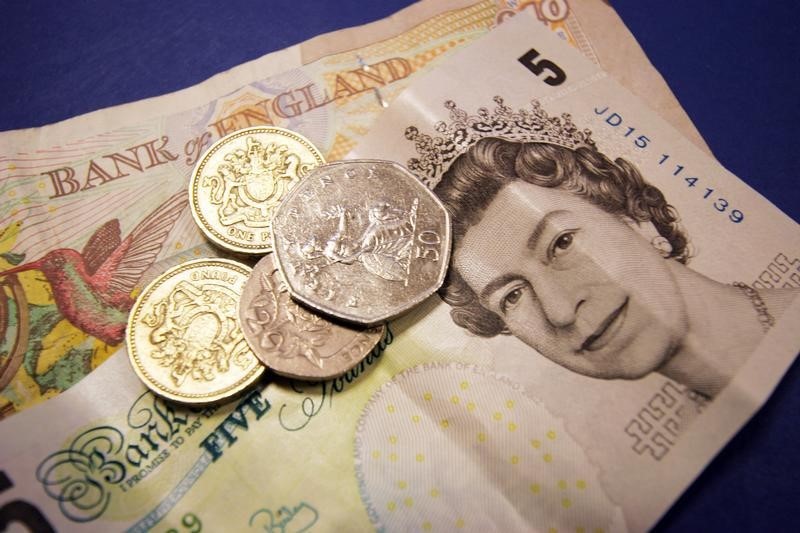LONDON (Reuters) - Britain's public sector budget deficit narrowed more than expected in April, giving Chancellor George Osborne a boost as he renews his push to fix the country's public finances.
The Office for National Statistics said public sector net borrowing, excluding state-controlled banks, totalled 6.8 billion pounds in April, down nearly 27 percent from a year earlier and the lowest shortfall for that month since 2008.
Economists taking part in a Reuters poll had forecast a shortfall of 8.1 billion pounds.
The public coffers were swelled by the highest value-added tax haul for April -- the first month of the financial year --
since records began in the 1997/98 financial year and the highest corporation tax revenues for the month since 2008.
Income tax revenues also rose to 11.6 billion pounds, the highest amount for April in two years as Britain's economic recovery translated into more tax receipts.
Also helping narrow the deficit, central government spending fell including a nearly 7 percent reduction in interest payments as Britain's ultra-low inflation reduced the government's bill on inflation-linked bonds.
Osborne is aiming to wipe out the deficit by 2018/19 after his Conservative Party unexpectedly won a parliamentary majority in the May 7 election, paving the way for further spending cuts.
Osborne had originally planned to eliminate the deficit by 2015 when the Conservatives and the Liberal Democrats formed a coalition government after the 2010 election.
Instead, he managed to halve the deficit to just under 5 percent of gross domestic product.
Revised figures published by the ONS showed borrowing in the 2014/15 tax year totalled 87.7 billion pounds compared with an earlier estimate of 87.3 billion pounds and a government goal of no more than 90.2 billion.
In March, Osborne said that he wanted to reduce borrowing to 75.3 billion pounds this financial year, equivalent to 4.0 percent of GDP.
Osborne is due to spell out a new budget on July 8 and has promised further cuts to welfare and government departments' spending.
The International Monetary Fund has raised doubts about whether Osborne can hit his targets, and many economists are sceptical that he can eliminate the deficit without raising taxes.
Public sector net debt, excluding state-controlled banks, totalled 1.488 trillion pounds in April equivalent to 80.4 percent of GDP.

Osborne aims to start bringing the ratio down in the 2015/16 financial year.